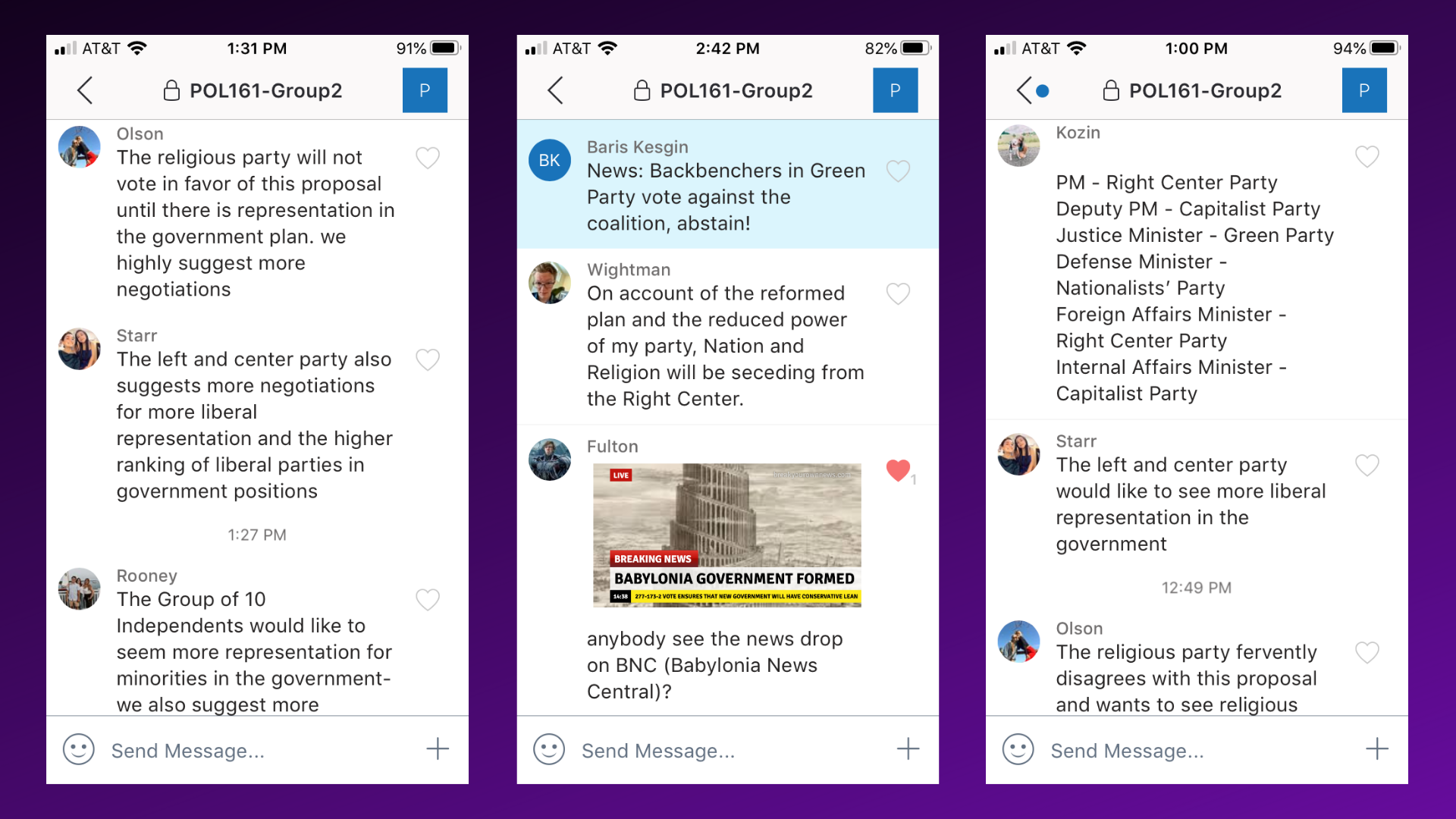Assistant Professor Baris Kesgin transformed what had been an in-class exercise into an online simulation with students forming their own coalition governments.
Parliamentary systems of government are literally foreign to most Elon students, so students in POL 161: Comparative Politics used a role-play exercise to better understand the political processes that form coalition governments.
Assistant Professor of Political Science and Policy Studies Baris Kesgin adapted the assignment from an in-class exercise. Students were divided into two “countries,” with each country needing to form a coalition government and elect important seats, such as prime minister, within its parliament.
“The simulation helps them gain understanding of how government works in a parliamentary system. They need to form a coalition government that’s half of the seats in parliament plus one. To do that, they need to convince other actors to join their government,” Kesgin said.
Students represented nine different political parties or points of view — plus a non-voting, non-partisan president position — and were tasked with working together to advance that party’s agenda while working together to form a government. Using the GroupMe app and video sessions, students worked throughout the week of April 6-10 to establish a government.
“It’s been a good way for them to interact with their peers and connect with each other” through remote learning, Kesgin said.
“My experience was good because I felt like a lot of people were reaching out to my party to join the coalition,” Ryan Jeffrey ’22 said. “This made me feel like I was actually a part of creating a government because I had so many parties needing and wanting my votes/seats. It was truly an engaging experience because I felt obligated to notify and discuss with other parties my views and expectations.”
By Thursday, the first group had formed a majority government, while the other was on its second attempt at finding a leader to unite parties into a government. Throughout the week, Kesgin played the role of the media, posting “breaking news” about each government’s progress and behind-the-scenes negotiations.
On Friday, each of the 32 students submitted memos to Kesgin reflecting on their experiences of forming the government.
Kesgin based the simulation on politics in his native Turkey in the 1990s. The election results students worked on are adapted from Turkey’s December 1995 parliamentary elections.
“The POL161 students formed coalitions that were realistic in that in two groups the different coalitions established were close representations of Turkey’s elections then,” Kesgin said.
The class will reflect on the exercise together this week.



